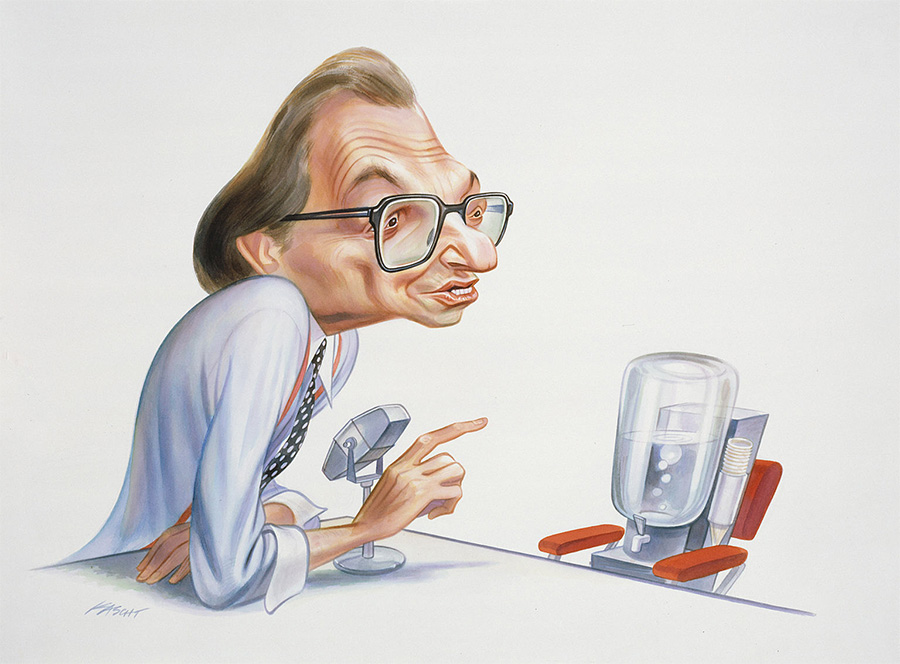Born Brooklyn, New York
Hailed by Time magazine as the “master of the mike,” Larry King hosted the first worldwide phone-in television talk show, Larry King Live. He was born to immigrant parents from Austria and Belarus, and grew up in difficult financial circumstances, especially after his father died in 1943. In his grief, King frequently turned to the radio, tuning into Brooklyn Dodgers baseball games and programs like The Lone Ranger. King broke into the radio business himself in 1957 while living in Miami but found his first real success in 1978, when he began hosting a national radio call-in show. From 1985 to 2010, he hosted Larry King Live, developing CNN’s highest-rated, longest-running program.
King became renowned for his more than fifty thousand candid interviews with individuals of varying backgrounds and beliefs. In more than fifty years of broadcasting, he interviewed every U.S. president from Richard M. Nixon through President Trump, and he received numerous honors, including two Peabody Awards. King described his success as “infotainment”—the conversation that he instinctively guided to reveal interesting, if sometimes bizarre, things about his guests. His light touch allowed him to ask difficult questions; for example, when he interviewed President Nixon, he asked, “When you drive by the Watergate, do you feel weird?” However, his career also was accompanied by problems of bankruptcy and charges of fraud. King was married eight times.
In 2012, King founded Ora Media. He also published fourteen books and established a foundation for cardiac care.
John Kascht’s drawing for an article on the art of dialogue, published in Fast Company (October, 1999), depicts the insatiably curious King—with his trademark glasses, rolled sleeves, and suspenders—in the act of interviewing a water cooler.
